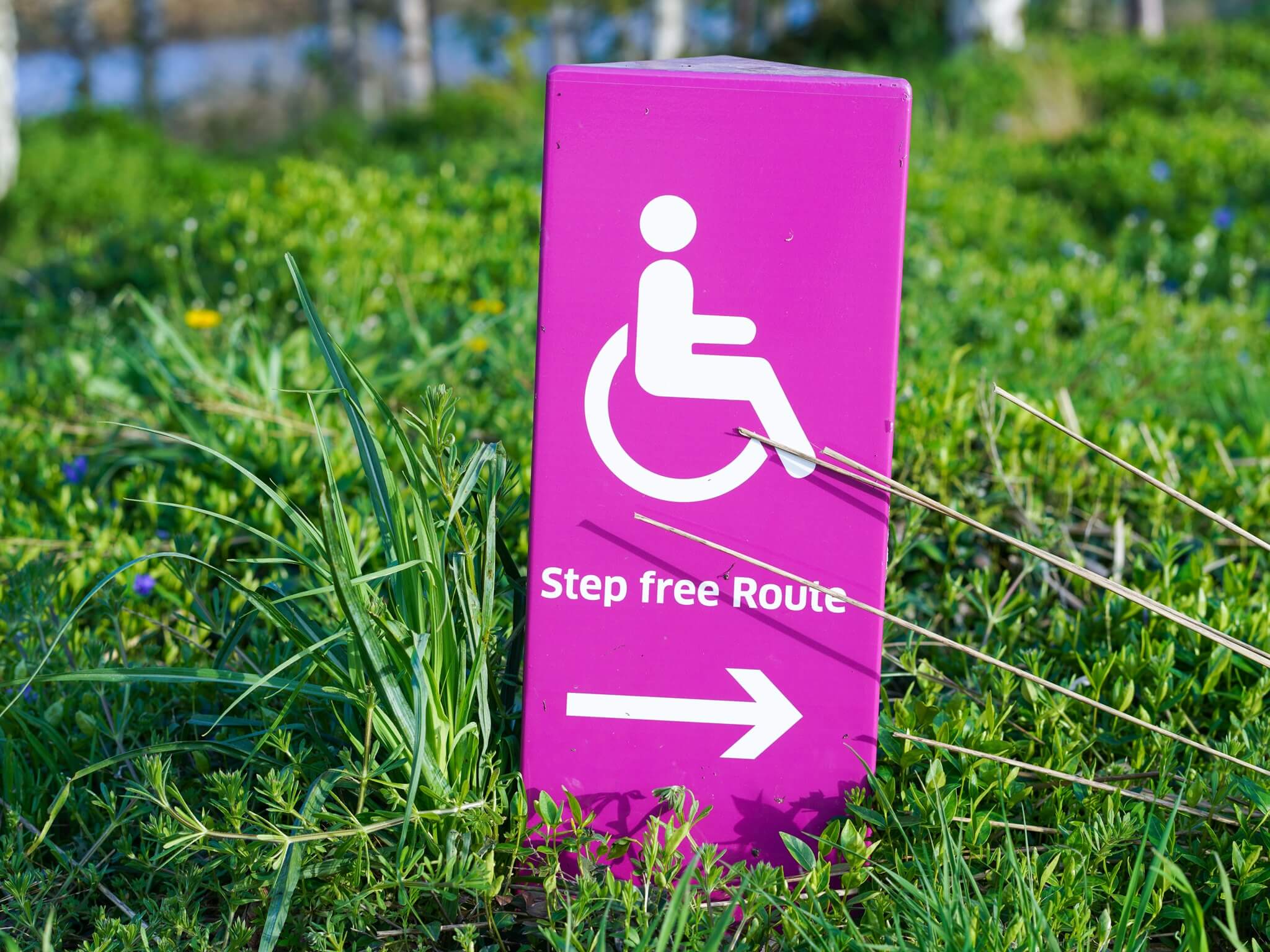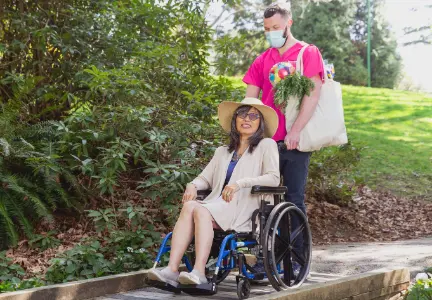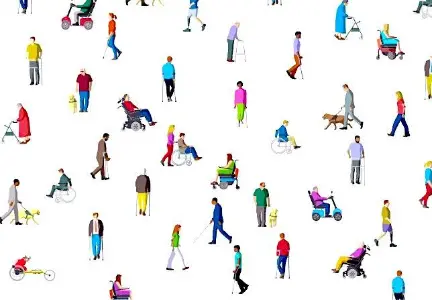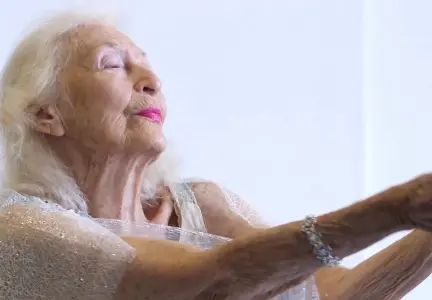3 Steps you can use to take action and challenge your thinking
“The quality of our life will be determined by the quality of our thinking” - Edward DeBono
In the world we live in today we are surrounded by a myriad of people overcoming physical and mental challenges, people breaking down barriers and choosing to not let their disability define them. In Australia one in five people are living with disability of some form. Disability does not discriminate based on age, gender or ethnicity and currently impacts more than a third of Australian households, many of whom access home care services through NDIS and disability support to ensure they can continue to live life on their terms.50% of Australians over 65 live with a disability2.1 million Australians between 15 and 64 years of age have a disabilityOnly 4.4% of people living with disability in Australia use a wheelchair1 in 6 Australians are affected by hearing loss45% of Australians aged 16-85 years experience a mental health condition during their lifetimeVision Australia estimates there will be over 500,000 Australians who are vision impaired by 2030, an increase of 65% on today’s vision impaired communityWhen you take a closer look at people thriving and achieving in spite of obstacles or adversity, you will find something that these people all share in common - a positive mindset and a laser sharp focus on what they can do, rather than what they can’t. Britain’s Shaw Trust has created an annual celebration of its most influential people with a disability, producing a list, the “Power 100”, each year to celebrate the achievements of people from a wide range of backgrounds and to show others how powerful a positive mindset can be.
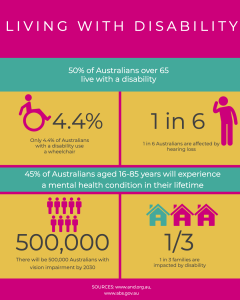
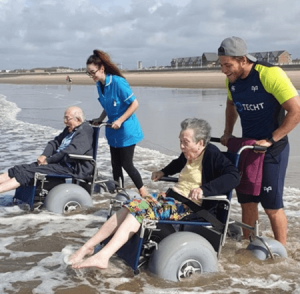
Conversely, research also shows many people living with disability lack the confidence or belief that an ordinary life, and indeed an extraordinary life, is within their grasp. People living with a disability often feel a sense of loss or a lack of control and there is no question that having a disability can create far more challenges and far greater challenges in life than for those without. This can lead them to not exploring various activities or opportunities. However, actively cultivating and nurturing a positive mindset can be one of the greatest tools to combat this and provide the key to living a happier, fuller life.
The choices we make for ourselves in life are driven by what Stanford University psychologist, Carol Dweck, refers to as either a fixed mindset (those who believe that abilities are fixed) or a growth mindset (those who believe that abilities can be developed). The power to choose the way we frame our life circumstances is within everyone’s grasp and should empower us to work on our mindset because of the potential it holds to improve and enhance the quality of our lives.
Michael J Fox says, "The one choice I don't have is whether or not I have Parkinsons, but beyond that my choices are infinite. How I approach it is up to me. It has a lot to do with - and this is hard for people to understand - accepting it. And that doesn't mean being resigned or not looking for a cure. But if you're trying to get away from it or change it, you're going to wear yourself out." This combination of acceptance and positivity has empowered him to lead a life filled with optimism and possibility.
In her book ‘Mindset : The New Psychology of Success’, Dweck shows how success in school, work, sport, the arts, and almost every area of human endeavor can be dramatically influenced by how we think about our talents and abilities and that those people with a growth mindset are more likely to flourish.
The great news is that developing a positive mindset, or growth mindset, does not require any previous experience, is free, and you can start straight away! It’s never too late to change our attitude and train our mind to develop those traits that lead to greater happiness - the power is in your hands. Make no mistake, happiness and positivity is not about being in a constant state of unbridled joy, it is more to do with day in, day out well being, rethinking how we look at our lives which then shapes how we live our lives.
A positive mindset empowers us to engage in the world around us, pursue our passions, strengths and abilities so we can realise and unleash our individual potential.As Dweck explains: “Mindsets are just beliefs. They’re powerful beliefs, but they are something in your mind, and you can change your mind.” This idea is important in realising that once you know how you think, you can decide whether or not to continue thinking that way.
[embed]https://www.youtube.com/watch?time_continue=16&v=MX8Nfl1EDBQ[/embed]Here are 3 steps you can take towards a positive mindset:
1. Develop an awareness of your thinking
“A pessimist sees the difficulty in every opportunity; an optimist sees the opportunity in every difficulty.” - Winston Churchill
To develop a growth mindset you must first hear your fixed mindset, your inner critic, and become aware of when you’re focusing on failure rather than success. Do you avoid challenges, worrying that you might fail if you try, give up easily or see effort as fruitless or not worthwhile? Are you taking on feedback or ignoring it, and do you feel threatened by the success of others?
Your fixed mindset sees the world as a predetermined set of outcomes and ignoring this way of thinking is what creates the only real barrier between you and success. On the other hand, once aware that you may be approaching individual tasks, or life in general, with a fixed mindset, you can then begin to shift your thinking, moving from a fixed to a growth mindset, silencing the inner critic, drawing on challenges and obstacles as opportunities to grow, learn and ultimately succeed.The Shaw Trust operates under the idea that we can each fulfil our aspirations and ambitions regardless of disability and impairment. Each year it recognises people who have not “overcome” disability but have embraced their individual abilities and redesigned their ‘possible’. Take Rob Smith, an engineering student living with a spinal cord injury resulting in partial paralysis in both his arms and legs, who combined his engineering skills with his lived experience of reduced hand function to design a unique gripping aid for gym equipment. He went on to found ‘The Active Hands Company’ winning awards for both design and technology. He says: “There is nothing better than realising the horizon of what you thought you could achieve has suddenly expanded.”Focusing on what you can do is not always easy. It can be difficult to reframe your views and beliefs when you have well grooved patterns. Fortunately the brain has the ability to rewire neural pathways, to learn new approaches and reinvent itself, and science has shown that a person’s beliefs and expectations can play a big role in forming new habits.
2. Reframe the possibilities
“Just because a man lacks the use of his eyes doesn’t mean he lacks vision.” - Stevie Wonder
Developing a growth mindset is not simple, but by:Embracing challengesPersisting in the face of setbacksSeeing effort as the path to masteryWelcoming and learning from feedbackFinding lessons and inspiration in the success of othersYou will reach higher levels of achievement and gain a greater sense of free will and possibility.In a 2018 ABC radio interviewDylan Alcott Olympic tennis gold medalist, radio host, philanthropist, author and most importantly disability advocate, noted there are always things that might concern him in terms of being in a wheelchair and living with disability, but his philosophy is that, for every one thing he can’t do, there are 10,000 things he can. He says “everyone has the choice to decide how they approach and act on their situation and personal circumstances, and I’m very much in the mindset that you make your own opportunities and it’s how you act on them that matters.”A paraplegic from infancy, Alcott lacked confidence as a teenager, readily admitting he defined himself by his disability. A conversation with a friend helped him realise he held the power to change how he, and others, viewed his ability, to understand he could often do far more than people imagined. And whilst most of us may not have goals to become Olympic gold medalists, it is stories such as his back-packing adventure around the world (mostly solo) that remind us that achieving any goal can be hard work but the results of the effort are the most rewarding part.
3. After reframing… take action
“You can still do things (when you're disabled). You might do it differently, or some other way." - Dylan Alcott
Taking action and challenging ourselves is the most important step in rewiring our brain towards positivity and happiness. Amongst positive psychologists the science of happiness and its success is measured through the idea that small positive actions every day will add up to large changes over time. These small positive actions result in frequent positive emotions like joy, interest and pride, and infrequent (though not absent) negative emotions such as sadness, anxiety and anger which, according to science is more likely to lead to happiness and feelings of positivity and success.
What challenges can you take on in order to foster and nurture a growth mindset? What challenges have you been avoiding? Choose a challenge and try it again, but this time, look for the possibility. Try something new or different like a daily adventure. Once you have success with the first challenge you will begin to see how you can reframe your mindset to take on the next one!
Changing how people react to situations, stressors and their perception of things is similar to trying to impact any other aspect of life such as diet or exercise. Habits do not change easily. Happiness is not something that happens to you, it is something you create and it is estimated that it can take five positive experiences to balance a single negative one so we must actively take steps to pursue happiness and work to maintain it. When we realise that everybody’s “normal” is different we can begin to understand that each and everyone of us will face different and varying challenges, and that our individual ‘possibility’ lies in our beliefs and the choices we make as to how we view success and happiness. With intentional work the effort will be worth it.

